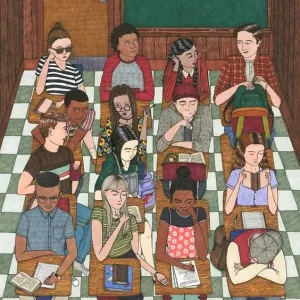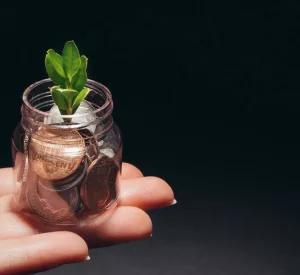“This is a country that is not future-oriented. Everything that is going to happen will happen, as if to say, involuntarily and to a great extent, against the will of the people. It will be dictated not so much by vision, concept, let alone dialog with the world, but by necessity – everyday life.” This quote is from Joseph Brodsky, a world-renowned anti-Soviet Russian and American writer who was expelled from the Soviet Union in 1972.
For many years he had to witness all the tragic events that happened in his motherland without being able to return. While living in the former Soviet Union it was extremely dangerous to speak against the ruling Socialist Party in the USSR. Today, history repeats itself in modern Russia, the successor of the USSR and the aggressor of the war in Ukraine. Now there is a complete absence of political pluralism, independent media, and, most importantly, respect for freedom of expression.
This article is dedicated to the analysis of political, economic, cultural, and social changes that followed after Russia’s brutal invasion of Ukraine on February 24, 2022. It also consists of my personal observations and comments from conversations I had with people who live there. The last time I went to Russia before the war in Ukraine started was in January 2022, a month before it began. Little did I know it would be the last time I would see my home country before it waged a war in the middle of Europe during the 21st century. Such a realization is something impossible to get used to even one and a half years later.
However, it was even harder for me to make the decision to return home and see what life is like for ordinary people during a time of war. It was challenging to answer questions like: What do Russian citizens think about the war in Ukraine? What things have changed in their lives and how have politics and economics impacted those changes? With all these questions on my mind, one month ago I went to Russia for the first time since the war started.
Economic changes
In the one-and-a-half years since the start of the war, the Russian economy has undergone a number of significant changes. The most notable changes are the withdrawal of many Western companies from the Russian market and the imposition of sanctions on Russian assets in foreign banks and various exported goods.
However, it is essential to note that Russia has avoided a rapid crisis, which many experts predicted as early as April/May of 2022. Some of the reasons for the avoidance of the rapid crisis are the development of the military industry, the imposition of government incentives for energy and finance industries, and the reorientation of trade towards Asian countries.
The reorientation of trade towards Asian countries is particularly important. Since the beginning of the war, Russia has been actively practicing a scheme of “parallel imports.” This means that goods that are on the sanctions list of Western countries for importation into the Russian Federation are re-purchased and imported through third-party countries that remain neutral or have an ambiguous position on the war. Turkey and Iran are avid examples of such countries. Because of this scheme, almost all goods from the “sanctions list” can be found on the shelves of Russian stores. Exceptions, perhaps, are large fashion brands of Inditex (Zara, Bershka, Pull&Bear) and new cars of European brands (Audi, Ford, BMW).
Russia enjoys the external strength of its economy due to its large budget expenditures. However, these expenditures are also the source of the country’s main economic problem which is a huge hole in the budget. At the end of June, the accumulated budget deficit amounted to almost 2.6 trillion Russian Rubles. This figure is less than in the previous months but is still significant nonetheless. The reasons for the record deficit are falling oil and gas revenues and record spending.
Another expected consequence of the sanctions was the recent sharp fall of the Russian currency. On August 14, the Ruble fell to a 16-month low. On the Moscow Exchange, the American dollar crossed the 101 Ruble mark and the Euro passed the 111 Ruble mark. The Board of Directors of the Bank of Russia gathered for an emergency meeting, where it decided to raise the key rate of August 15, 2023, from 8.5% to 12% per annum.
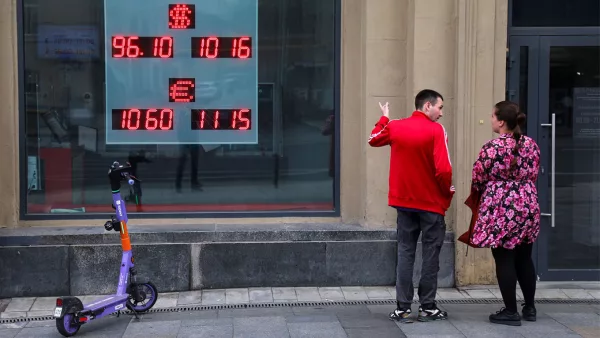
All of the above changes have one main effect on ordinary people: a sharp rise in prices from February 2022. This sharp increase was hard to overlook as I still perfectly remember the prices in Russia just one and a half years ago.
Social and cultural changes
The main socio-cultural change in the country is its dramatic isolation from the developed world, both socially and physically. In pre-war times, only 28% of Russians had foreign passports to travel to other countries. This means that the number of people who had an idea of what life was like outside Russia was minimal. It is important to note that a high percentage of those who regularly traveled abroad were residents of Moscow and St. Petersburg, the two largest and most developed cities in Russia. With the outbreak of the war in Ukraine, opportunities to travel became increasingly more scarce and expensive.
A significant reason for the decrease in tourist flow from Russia was the full suspension of the Visa Facilitation Agreement with Russia for all Schengen visas. This agreement previously allowed Russians to get visas with a smaller package of documents, wait 10-30 days for consideration, and only pay a service fee of 35€. Now the waiting period has been extended to 15-45 days and the service fee increased to 80€. In addition, a number of European countries, namely Latvia, Poland, and Finland have stopped issuing visas to Russians and banned entry of Russians into the EU through their borders.
Other notable changes include the blocking of social networks such as Instagram and Facebook. Corporations like Mcdonald’s, IKEA, and Starbucks have also departed the country. However, in each of these cases, there are workarounds. For example, social networks function with the help of VPN services and Russian analogs take the place of the brands that left. Even with these workarounds, the convenience and level of pleasure people were accustomed to have dramatically decreased.
Political changes
I am sure that the most important changes are political changes. Russia has gone from being a country with irremovable power, to a state with military censorship, no internal political competition, and no independent media. Absolutely all independent media outlets that had been operating in Russia before the war have been blocked and recognized as foreign agents. Their staff were arrested or forced to leave the country in a hurry without the possibility of returning. The authoritarian Russian government did not provide any compromises.
Newly issued Russian war censorship laws such as “discrediting of the Russian army,” “fakes about the army,” and “state treason,” banned all mass protests, meetings, rallies, and various other forms of dissent. Anyone who publicly (online or offline) expresses disagreement with the war in Ukraine receives criminal penalties and up to 25 years in prison. This has become the price for freedom of expression.
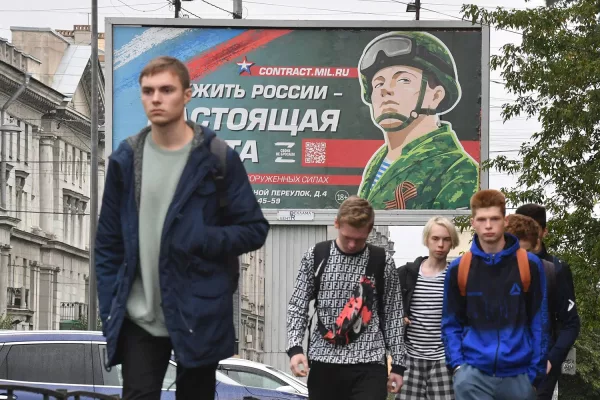
In light of such repressions, up to one million Russians left the country in 2022. These were mostly young people able to work remotely. Many of them, however, were forced to return because of difficulties in obtaining foreign documents and jobs in foreign countries. Nevertheless, the outflow of intelligent people with bright futures continues.
Along with individual citizens, media companies and newspapers are leaving, as they refuse to work for state propaganda. For example, the Russian independent media outlet “TV Rain” has been working in Riga since March 2022.
Supporters of Alexei Navalny continue the activities of his Anti-Corruption Foundation exclusively from abroad. Navalny himself has been in a Russian prison since January 2021, after his attempted poisoning in August 2020. Many European leaders have repeatedly urged the Russian authorities to stop political repression and release Vladimir Putin’s opponent.
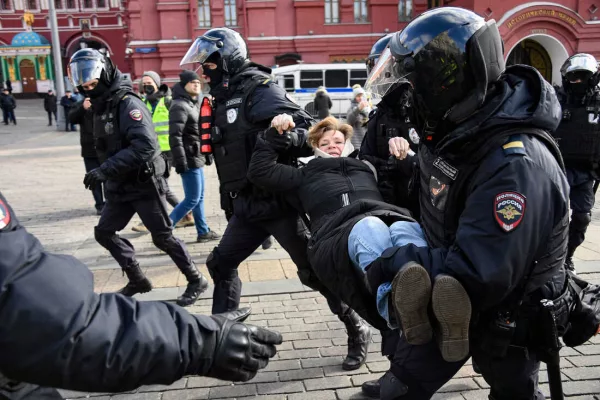
What do Russian citizens think about the war in Ukraine?
The questions that agitated me the most prior to my arrival in Russia were: What do ordinary people think about the war? Is there that high of a percentage of support that the state propaganda never tires? It is very difficult to give an objective answer to these questions. It is important to realize that any polls and statistics during wartime in an authoritarian country are not reliable. People, while being scolded by the authorities, will not give an honest answer.
However, you can get the opinion of people close to you, and on the basis of that, put together a general picture of what is happening from your personal perspective. In my environment, to be perfectly honest, there were almost no supporters of the war. From the early days, many of my friends went to anti-war protests and expressed their opinions on social media.
Nevertheless, along with the horror of war comes war weariness. In my hometown of St. Petersburg, I often noticed a previously unfamiliar expression of apathy and hopelessness on people’s faces. This was my ubiquitous observation during the month I visited there. In conversations, people often mentioned the worsening of their standard of living due to rising prices, the loss of jobs in foreign companies that have left the Russian market, and the lack of understanding concerning what to do next.
Many people do not support the war, but they all ask themselves the same question: What can I do to influence the situation, especially while living in the same country with millions of individuals who do support the war? Unfortunately, in the context of such a large country like Russia, both support and condemnation of the actions of the state are counted in millions. Therefore, such a large split in society makes it extremely difficult to understand the overall situation and people’s sentiments.
In conclusion, the ongoing war in Ukraine has brought about profound economic, social, cultural, and political changes in Russia. These changes have led to a complex landscape of opinions and sentiments among its citizens, characterized by a mix of anti-war activism, war weariness, and a challenging quest for individual influence in a divided society.
Cover photo by: Silar


